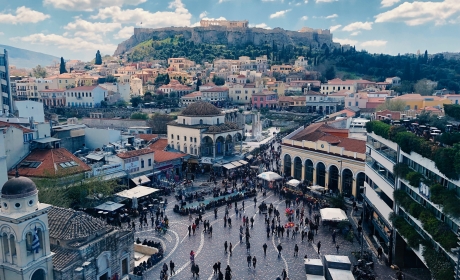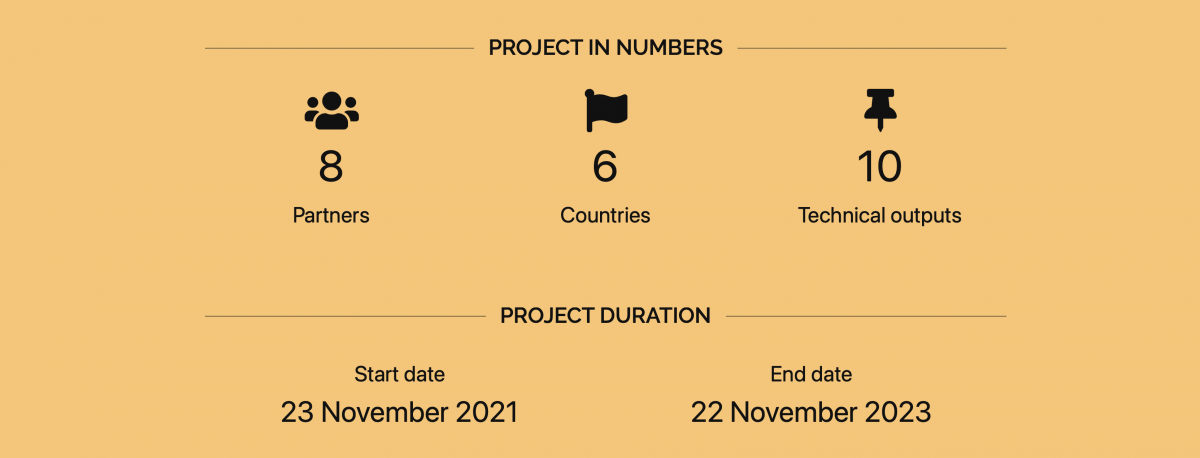
Search can help you find News, People, Programs, and more...
CARISMED promotes the uptake of results achieved by 3 ongoing ENI CBC MED projects to develop policies for improving sustainability and integrating innovation into the urban settings of Mediterranean cities, through the capitalization of circular economy (CE) and creative approaches. A great deal of experience in re-setting the existing environment will be provided by these projects through refurbishment and re-using underutilized or abandoned urban stock. Towards a more sustainable and smart urban development, a low-cost Adaptive Reuse Strategy will use MAIA-TAQA innovation practices and interlinks with policy-makers, and INNOMED-UP model for CE procedures within Cultural Creative Industry (CCI) SMEs. CE supply chain will address urban challenges while creating business opportunities for SMEs by using INNOMED-UP model and SME4SMARTCITIES smart tools and techniques through ‘ready to deploy’ solutions. Cooperation agreements among cluster members will be further built up to enhance collaborative innovation schemes based on MAIA-TAQA policy instruments, SME4SMARTCITIES framework for collaboration between the public and private sector, and INNOMED-UP framework for CCI SMEs clustering. Finally, the project will promote innovative methodologies for re-setting the built environment in Mediterranean cities by developing a toolkit and guide on upcycling buildings and areas through CCI SMEs clustering.
Acronym: CARISMED
Full title: CApitalisation for Re-setting Innovation and Sustainability in MED-Cities
Thematic objective: A.2 Support to education, research, technological development and innovation
Priority: A.2.2 SMEs access to research and innovation
Countries: Palestine, Greece, Spain, Italy, Tunisia, Jordan
To develop urban policies for improving sustainability and integrating innovation into the urban setting of Mediterranean cities in order to effectively re-structure living and working conditions
What will be improved?The project will promote innovative methodologies for resetting the built environment by developing a toolkit/advisory guide on up-cycling buildings through CCI SMEs clustering. Over 5 SMEs per city will benefit from being involved in the project and from their cooperation with researchers. 12 cross-border mentorship vouchers will be launched to establish transnational cooperation. Over 500 citizens per city will engage in communication activities. Moreover, the digital e-learning platform will make the knowledge and resources pooling results and good practices available for mainstreaming and dissemination at cross-border level. |
Who will benefit?
|
Expected achievements
|
The project aspires to contribute to the policy development of the participating territories in a multi-level way. Concerning the adoption of circular practices in the Mediterranean Partner Countries, there is a proven lack of waste management capacities due to a low level of training of key communities and the public as well as insufficient policy tools. INNOMED-UP’s model on circular economy will add much needed valuable experience. The synergy with MAIA-TAQA and SME4SMARTCITIES will be pursued in terms of policymaking & best practices adoption.

The team of CARISMED projects at Birzeit University is pleased to share with you the first video introducing the main objectives of the project. "Capitalization for Re-setting Innovation and Sustainability in MED Cities”, CARISMED project comes under the ENI CBC Med Programme ENI CBC Mediterranean Program. The project aims at building on the outcomes of five accomplished or still ongoing projects within this Mediterranean Program, which aims to develop policies and seek to improve sustainability and integrate innovation in the urban environments of Mediterranean cities through the Circular Economy (CE) and innovative approach.